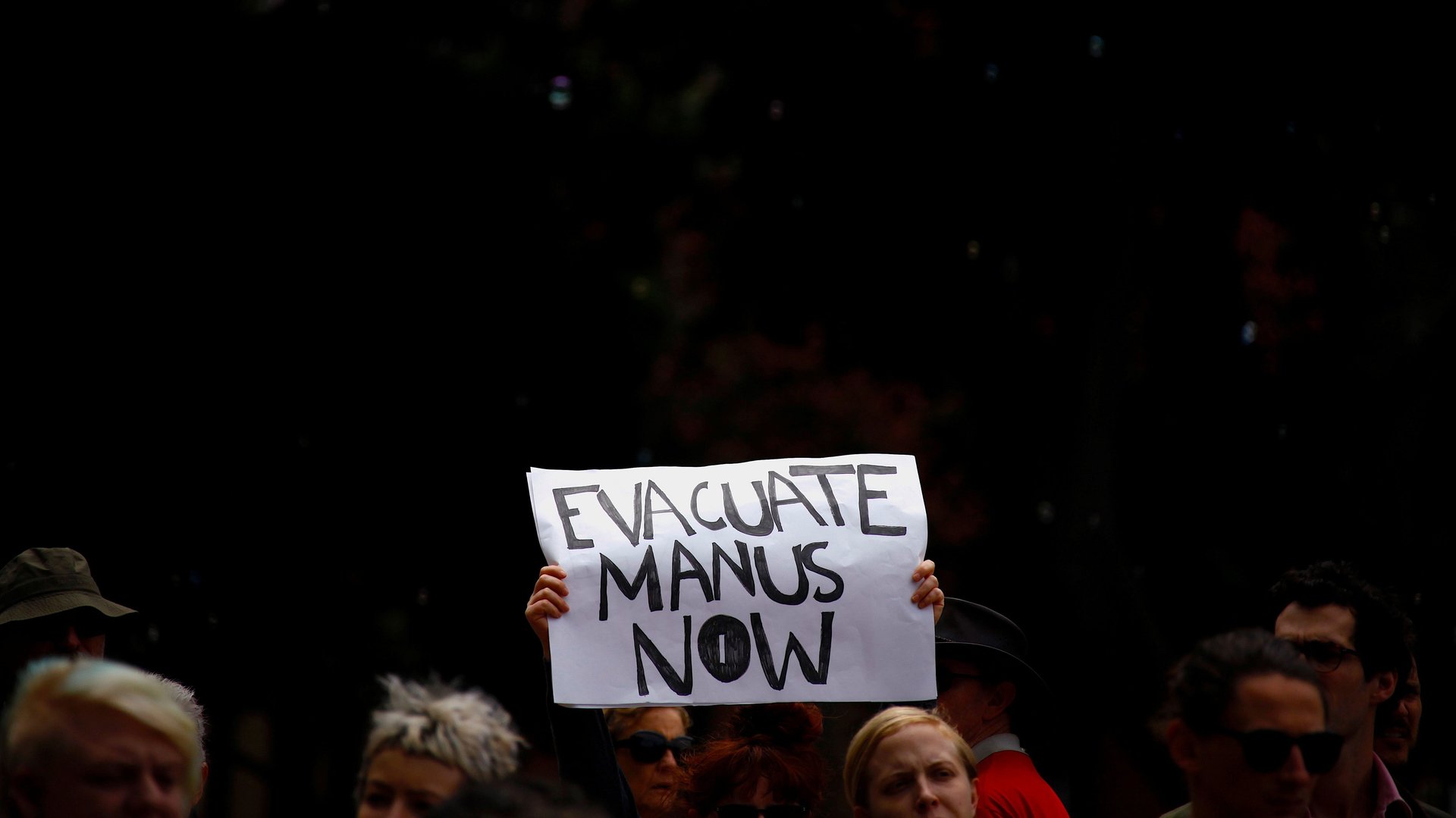Australia trapped refugees on an off-shore island. Now it’s slowly denying them health care
The human rights crisis on Manus Island has gone from bad to worse.


The human rights crisis on Manus Island has gone from bad to worse.
The 700-strong refugee population on the island, which is part of Papua New Guinea, has one of the highest rates of mental illness in the world, according to the United Nations. But over the past six months, the Australian government has shut down counseling services for refugees and asylum seekers and has slowly reduced access to health care, according to a recent report by Amnesty International. The human rights organization adds that the current decision to rollback health care “at this time is making a grave situation even worse.”
“Nearly five years after Australia began implementing its harmful and illegal offshore detention policy, the situation for refugees and asylum seekers trapped in PNG [Papua New Guinea] is as desperate as ever,” Kate Schuetze, a researcher at Amnesty International, said in a statement.
Since 2013, Australia has redirected asylum seekers who arrived by sea to the remote Pacific islands of Manus and Nauru. The policy, which has been widely condemned, permanently bans asylum seekers who arrive by boat from entering Australia. Previously leaked reports show that asylum seekers on the island are subject to human rights violations, including sexual abuse. Detained asylum seekers have even set themselves on fire in protest of their treatment.
According to Amnesty International, refugees and asylum seekers often wait for months for treatment for serious health conditions, including suspected cancerous lumps, typhoid, and dengue fever. One refugee, who has a stomach and kidney problem, said he had a stent inserted into his stomach during an operation and was told by doctors it would be removed after six weeks. Eight months later, the stent hadn’t been removed. Though the stent was pressing against his bladder and causing bleeding, he was told by doctors there were no specialists on either island to help him.
About 2,000 refugees and asylum seekers remain in Australia’s offshore system. While a few hundred have been accepted for resettlement in the US, many still face an uncertain future.